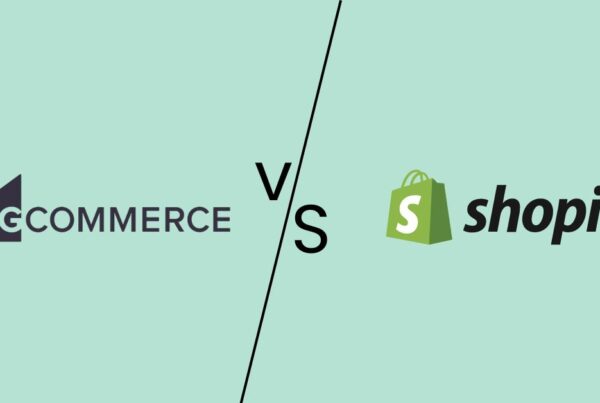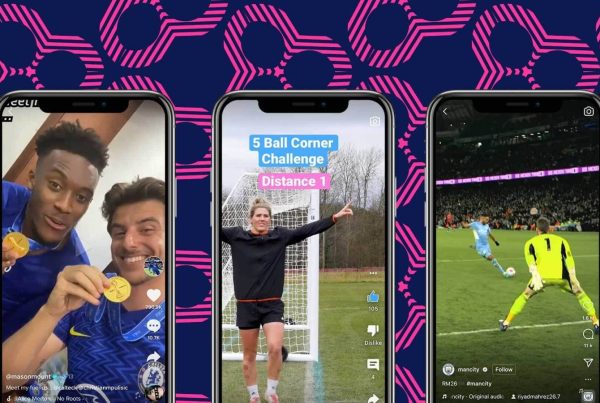Disclosure Sponsored Links: This post contains a paid-for sponsored link, meaning we have received compensation in exchange for including it. Sponsorship does not influence our content, but we believe in transparency regarding paid placements.
It isn’t easy to develop a mobile app. Sure, there are a whole host of possibilities, but there are also many challenges to face.
Whether you’re focused on iOS or Android or are looking for a dual-platform launch, the success of your app will depend on a deep understanding of your chosen platform’s unique traits and requirements.
This guide aims to give you a head start. We will provide essential insights into mobile app development for both Android and iOS, blending platform-specific advice with beginner-friendly tools and professional guidance.
Table of Contents
Understanding Platform Requirements
Here are some things you need to know when working with each platform.
iOS Development Requirements
Mobile app development for iOS has its own set of rules, tools, and languages. Let’s cover them briefly.
Swift and Objective-C
Swift is Apple’s innovative programming language, designed for safety, performance, and software design patterns. Although older, Objective-C is essential for maintaining and updating apps originally built with it. For those new to iOS development, Swift is recommended due to its ease of learning and robust community support. Apple’s Swift documentation offers comprehensive guides and tutorials.
Xcode
Xcode integrates all the tools needed for iOS development, from writing code to debugging and designing user interfaces. It’s only available on Mac, which is something to consider if you’re entering the iOS development space. Apple provides extensive app development tutorials to get you started.
App Store Guidelines
Navigating the App Store’s guidelines is crucial for the approval and success of your app. These guidelines cover everything from user privacy to app functionality and design. Review the App Store Guidelines carefully to ensure your app complies.
Android Development Requirements
As you might expect, Android development comes with a different set of requirements. Here are a few.
Java and Kotlin
Java has been the backbone of Android app development, offering a rich library of resources. Kotlin, on the other hand, is a modern language that offers several advantages over Java, such as being more concise and reducing the chance of bugs. Google’s endorsement of Kotlin has supported its rise in popularity, making it the preferred choice for new projects. Explore Kotlin through Google’s Kotlin documentation.
Android Studio
This is the official IDE for Android development, providing a powerful suite of tools designed specifically for creating Android apps. Android Studio supports both Java and Kotlin, offering an adaptable development environment for developers at all levels. For beginners, Google provides a range of Android Studio guides.
Google Play Store Policies
Understanding and adhering to Google’s Play Store policies is essential for the distribution and success of your Android app. These policies ensure that apps meet Google’s user safety and quality standards. Familiarise yourself with the Developer Policy Center to avoid common submission pitfalls.
Tools and Software for Beginners
The right tools can significantly streamline the app development process. Here’s a look at some essentials:
Cross-Platform Development Tools
These tools enable developers to use a single codebase to target both iOS and Android platforms, making them ideal for beginners looking to maximise their reach with minimal duplication of effort. Each has its strengths: Flutter is known for its rich widgets and smooth UIs, React Native leverages JavaScript and native components, and Xamarin uses C# for near-native performance.
Prototype and Design Tools
These are indispensable for designing intuitive and visually appealing app interfaces. Sketch is a vector-based design tool exclusive to Mac, while Adobe XD and Figma offer cross-platform functionality, with Figma operating directly in the browser for seamless collaboration. Each tool has unique features, but all are user-friendly for beginners.
Version Control Systems
Essential for managing code versions and collaborating with other developers, Git helps track changes and revert to previous states when necessary. GitHub and GitLab also offer platforms for hosting Git repositories, issue tracking, and more. Beginners can find a wealth of resources and tutorials on Git, such as GitHub’s Git guides.
When to Hire a Professional
While having the drive to dive straight into app development is commendable, self-taught skills will only get you so far. Here’s when seeking expert help could be your best move:
- Complex functionality — For apps with advanced features or backend complexities, a professional development team can provide the expertise necessary to bring your vision to life with efficiency and sophistication.
- Design and user experience — The impact of a well-thought-out design and seamless user experience on your app’s success cannot be overstated. Professional designers and UX experts can elevate your app, making it engaging and intuitive for users.
- Security concerns — If your app handles sensitive information or requires stringent security measures, it’s imperative to consult with security specialists. They ensure your app’s defences are robust, protecting against vulnerabilities and compliance issues.
- Scaling and performance optimisation — Maintaining performance is crucial as your app gains traction. Specialists in this field can optimise your app’s infrastructure to handle increased load efficiently.
- Regulatory compliance — Navigating the complexities of legal and regulatory requirements, especially in sectors like healthcare or finance, demands expertise. Compliance professionals can help ensure your app meets all necessary standards, avoiding potential legal pitfalls.
If you are interested in hiring a professional team to develop your mobile app but are intimidated by the selection process, there are valuable resources to tap into. DesignRush lists the top mobile app development companies offering a curated selection—explore their recommendations at https://www.designrush.com/agency/mobile-app-design-development.
Conclusion
It takes technical skill, creative vision, and strategic planning to develop a mobile app. While the journey from concept to launch is laden with challenges, the right approach and the appropriate tools can make the process manageable and rewarding.
Also, it is essential to understand when you are punching above your weight, and leveraging professional expertise can be vital to achieving success in this competitive landscape.
Remember, the path to creating a successful mobile app involves continuous learning, experimentation, and adaptation. With dedication and the right resources, you can turn your app idea into a reality that resonates with users across platforms and across continents.
How to download apps without apple id on an Apple device without using an Apple ID, one option is to use third-party app stores like TutuApp, AppValley, or TweakBox. These platforms offer apps that can be installed without an Apple ID. However, using such stores poses security risks, as they can contain malicious software. Another method is to use iTunes or the Finder on a computer to manually install apps by downloading the .ipa files, but this requires a trusted source








